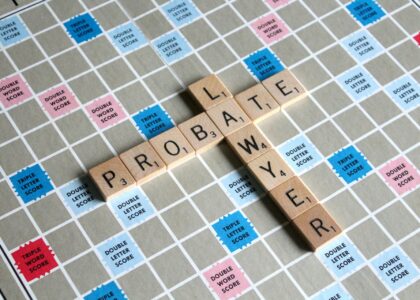The Pennsylvania Senate recently passed Senate Bill 1173, aimed at regulating the practice of residential wholesaling. This Bill, sponsored by Sen. Pat Stefano, now awaits consideration by the Pennsylvania House of Representatives. Here’s what this new legislation means for consumers and those involved in real estate transactions.
What is Residential Wholesaling?
Residential wholesaling is a practice where individuals, often investors, contract with homeowners to buy their property and then sell that contract to another buyer for a profit. This can create confusion and uncertainty for homeowners who might not fully understand they are engaging in a wholesale transaction rather than a traditional sale.
What are the Key Changes Under Senate Bill 1173?
- Licensing Requirement:
- Who Needs a Wholesale License?: Under the new bill, anyone conducting residential wholesale transactions must have a real estate salesperson license. This means they need to be properly trained and regulated under the Real Estate Licensing and Registration Act (RELRA).
- Why is This Important?: Licensing ensures that individuals conducting these transactions are knowledgeable and adhere to professional standards, protecting consumers from potential fraud or unethical practices.
- Disclosure Requirements:
- Transparency for Consumers: The bill mandates that consumers must be clearly informed when they are part of a wholesale transaction. Proper disclosures must be provided, ensuring homeowners understand the nature of the transaction.
- Benefits: This transparency helps consumers make informed decisions and reduces the likelihood of confusion or misunderstanding about the sale process.
What Does the New Wholesale Legislation Allow?
Here’s what the Bill means for you:
- Licensing Requirement:
- Anyone conducting residential wholesale transactions must have a real estate salesperson license. This ensures that these individuals are properly trained and regulated.
- Right to Cancel:
- With ANY wholesale transaction, even with a licensed agent, you will have a right to cancel the agreement within 30 days or until the property is transferred.
- Additionally, if the contract lacks required information, you can cancel at any time before the property is transferred.
- Notice of Cancellation:
- To cancel, send a notice by certified mail, electronic delivery, or personal delivery and get a receipt.
- Cancellation is effective on the date of mailing, electronic transmission, or delivery.
- Refunds:
- Within 10 business days of cancellation, you must receive a full refund of any payments made.
- Any promotional prizes or gifts remain yours after cancellation.
- Disclosure Requirements:
- The sales agreement or contract must clearly state:
- It’s a wholesale transaction where the licensee plans to transfer the interest for a fee without owning the property.
- You have the right to get an appraisal, consult an independent real estate licensee, or seek legal counsel.
- Your right to cancel the agreement within 30 days or until the property is transferred.
- The requirement for a full refund within 10 business days after cancellation.
- No Liability for Damages:
- If you cancel the contract, you won’t be liable for any damages resulting from the cancellation.
Why Does This Legislation Matter?
The Pennsylvania Association of Realtors (PAR) has been a strong advocate for this legislation since its inception. Their efforts, along with those of the PAR Legislative Committee and a Wholesaling Task Force, highlighted the importance of regulating residential wholesaling to protect consumers and bring uniformity to real estate practices across the state. Here’s why this Bill is crucial:
- Consumer Protection
- Preventing Fraud: Requiring wholesalers to have a real estate license reduces fraud and misrepresentation.
- Informed Decisions: Mandated disclosures ensure homeowners understand they’re in a wholesale transaction, aiding informed decision-making.
- Professional Standards and Accountability
- Competence and Ethics: Licensing ensures wholesalers meet educational and ethical standards, enhancing market integrity.
- Oversight: Licensed professionals are subject to regulatory oversight, promoting accountability and ethical behavior.
- Market Transparency and Uniformity
- Clear Practices: Standardized requirements bring clarity and uniformity to the market, benefiting all parties.
- Market Stability: Transparent practices foster market confidence and stability.
- Economic Benefits
- Property Values: Ethical practices help maintain property values.
- Legitimate Business: The bill supports legitimate professionals by ensuring a level playing field.
How Does This Affect You?
- For Homeowners: If you’re selling your home, you will now have the assurance that the person you are dealing with is licensed and operating under strict guidelines. This provides an added layer of protection and clarity.
- For Wholesalers: If you engage in wholesaling, you will need to obtain a real estate salesperson license. This may require additional training and adherence to new regulations, ensuring your practices are transparent and ethical.
In sum, Senate Bill 1173 aims to create a safer, more transparent real estate market in Pennsylvania by requiring licenses for wholesalers and ensuring clear disclosures for consumers. This legislation marks a significant step toward protecting homeowners and standardizing real estate transactions across the state. If you are interested in wholesaling and In need of legal assistance please contact us at [email protected]


